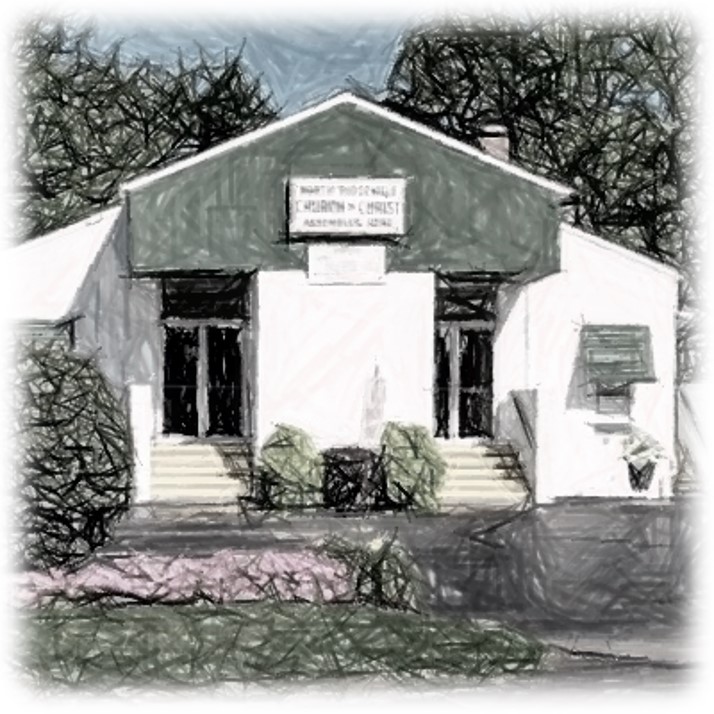"Jesus, the Fire-and-Brimstone Preacher"
Nick S. Wallace
When preachers and teachers address the dangers of sin and hell, some may think they aren't Christ‐centered. While preachers shouldn't preach only on hell, the very fact that they should preach "the whole counsel of God" (Acts 20:27) demands that they address hell also. After all, among the things the apostle Paul taught were "righteousness, self-control, and the judgment to come" (Acts 24:25). One cannot discuss "the judgment to come" without addressing the danger of being judged guilty of sin. One cannot preach Jesus without addressing hell, for every time we find the word "hell" (gehenna) in the New Testament, it appears in the mouth of Jesus. (James 3:6 represents the only exception.) Of course, passages outside the gospels address the final fate of the wicked, but they do so using other terms. Let's examine what Jesus taught about hell.
John the Baptist spoke of Jesus thus: "His winnowing fan is in His hand, and He will thoroughly clean out His threshing floor, and gather His wheat into the barn; but He will burn up the chaff with unquenchable fire" (Matt. 3:12). Using similar language, Jesus explained that, as weeds are burned up in fire, so Jesus will send out His angels at the end of the age to "gather out of His kingdom all things that offend, and those who practice lawlessness, and will cast them into the furnace of fire. There will be wailing and gnashing of teeth" (Matt. 13:41–42).
In the Sermon on the Mount, Jesus said that those who call others a "fool" (Greek, moros) simply out of anger "shall be in danger of hell fire" (Matt. 5:22). In the same sermon (vv. 29–30) and at other times, Jesus explained that anything—even amputation—would be better than suffering in hell, the place where "Their worm does not die, And the fire is not quenched" (Mark 9:43–48; cf. Matt. 18:8–9).
Jesus condemned the Pharisees since they took great lengths to convert proselytes only to make a convert "twice as much a son of hell as yourselves" (Matt. 23:15). He then asked them how they could expect to escape the same "condemnation of hell" (v. 33). We should fear this condemnation rather than fear men since, as Jesus explained, people can kill only the body; instead, we should fear God, "who is able to destroy both soul and body in hell" (Matt. 10:28; cf. Luke 12:4–5).
Additional passages on the subject abound. However, for a parting thought, remember that the Adolf Hitlers of the world aren't the only ones condemned to hell fire. When Jesus explained the difference between the righteous who have "eternal life" and the lost who will undergo "everlasting punishment" (Matt. 25:46), the distinction was simply between those who served "one of the least of these My brethren" (vv. 31–40) and those who neglected "one of the least of these" (vv. 40–45). Do we ignore Jesus' brethren when they're "hungry or thirsty or a stranger or naked or sick or in prison" (v. 44)? If so, Jesus considers it the same as if we neglected Him (v. 45). May we instead walk in love toward each other, that we may be counted as having done so to Jesus Himself and inherit eternal life!
Remember
(Author Unnamed)
Luke 22:19," do this in remembrance of Me."
Take this bread and eat
Remember
Man shall not live by bread alone,
But by the word that proceeds out of the mouth of God.
Remember
Four Thousand men, fed with seven loaves of bread
Remember
With man it is impossible, but not with God;
For with God all things are possible
Remember
The Israelites ate manna in the wilderness and died
Remember
For the bread of God is He who comes down from above
Remember
I am the bread of life. He who comes to me shall never hunger
Remember
Take this cup and drink
Remember
Why do you, a Jew, ask me for a drink?
Remember
Whoever drinks of the water I give, will never thirst
Remember
Beating, flogging, mocking, a crown of thorns, crucifying
Remember
For this is My blood of the New Covenant shed for you
Remember
He is not here
Remember
God has raised Him up
Do you remember?
.
